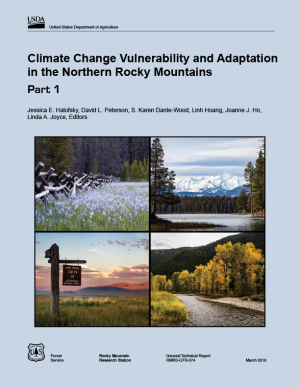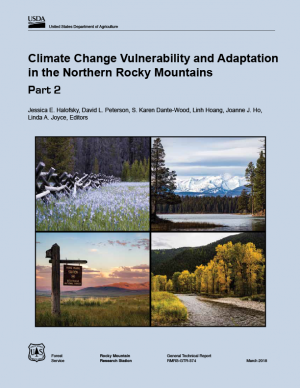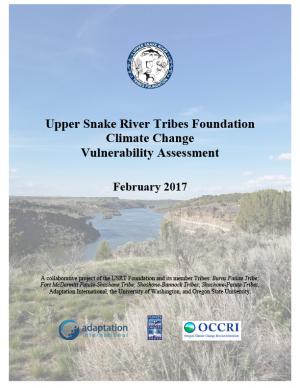Access a range of climate-related reports issued by government agencies and scientific organizations. Browse the reports listed below, or filter by scope, content, or focus in the boxes above. To expand your results, click the Clear Filters link.
The Northern Rockies Adaptation Partnership identified climate change issues relevant to resource management in the Northern Rockies region and developed solutions intended to minimize negative effects of climate change and facilitate transition of diverse ecosystems to a warmer climate. Their vulnerability assessment emphasizes water, fisheries, wildlife, forest and rangeland vegetation and disturbance, recreation, cultural heritage, and ecosystem services, which are regarded as key resource areas for local ecosystems and communities. Resource managers used the assessment to develop a detailed list of ways to address climate change vulnerabilities through management actions. The large number of adaptation strategies and tactics, many of which are a component of current management practice, provide a pathway for slowing the rate of deleterious change in resource conditions.
The Northern Rockies Adaptation Partnership identified climate change issues relevant to resource management in the Northern Rockies region and developed solutions intended to minimize negative effects of climate change and facilitate transition of diverse ecosystems to a warmer climate. Their vulnerability assessment emphasizes water, fisheries, wildlife, forest and rangeland vegetation and disturbance, recreation, cultural heritage, and ecosystem services, which are regarded as key resource areas for local ecosystems and communities. Resource managers used the assessment to develop a detailed list of ways to address climate change vulnerabilities through management actions. The large number of adaptation strategies and tactics, many of which are a component of current management practice, provide a pathway for slowing the rate of deleterious change in resource conditions.
This report details the 2016 collaborative assessment project of the Upper Snake River Tribes Foundation and its member tribes—the Burns Paiute Tribe, the Fort McDermitt Paiute-Shoshone Tribe, the Shoshone-Bannock Tribes, and the Shoshone-Paiute Tribes—and partners Adaptation International, the University of Washington, and Oregon State University. The project assessed climate change vulnerability for the Upper Snake River watershed in Idaho, Nevada, and Oregon, and combined the best available localized climate projections with traditional knowledge, tribal priorities, and local observations to develop quantitative vulnerability rankings for 16 species of shared concern and a qualitative assessment for an additional 12 shared concerns. The set of 28 shared concerns assessed for climate change vulnerability provided a balanced cross-section of the species, habitats, and resource issues important to the tribes. Along with this report, the project also produced eight summary sheets detailing specific species and habitat vulnerability.






